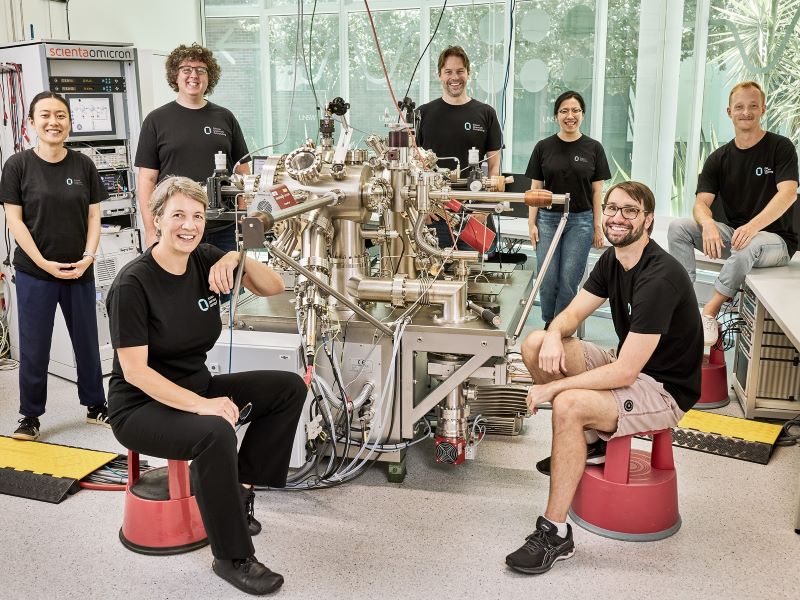Pioneering Australian deep tech startup Silicon Quantum Computing has claimed a breakthrough by creating the world’s first integrated circuit manufactured at an atomic scale.
The quantum processor allowed the scientists to accurately model the quantum states of a small organic molecule and could lead to the construction of entirely new materials.
The new materials could be used to make long theorised efficient artificial photosynthesis and high temperature super conductivity a reality, and produce more effective drugs and more efficient solar cells.
Silicon Quantum Computing (SQC) founder Michelle Simmons will launch the findings at UNSW on Thursday alongside Australia’s Industry and Science minister Ed Husic, following the publication of research in the prestigious Nature journal overnight.

The breakthrough comes two years ahead of schedule for SQC, which has state of the art research and atomic manufacturing facilities in Sydney led by Professor Simmons, the 2018 Australian of the Year.
The atomic-scale integrated circuit fabricated at the facility is a culmination of 20 years of research led by Professor Simmons, and delivers on a challenge first set by pioneering theoretical physicist Professor Richard Feynman.
In his now famous 1959 lecture Plenty of Room at the Bottom, Professor Feynman asserted the possibility of direct manipulation of individual atoms as a more robust form of synthetic chemistry.
SQC’s breakthrough delivers on Professor Feynman’s challenge by building an integrated circuit using atomic components in silicon and comes less than a decade after the researchers behind SQC’s 2012 declaration that they had fabricated the world’s first single atom transistor.
Classical computers struggle to simulate relatively small molecules due to the large number of atoms because of the large number of possible interactions between atoms.
But the quantum integrated processor can make these calculations and will allow SQC and its customers to construct specific quantum models for a range of new materials, potentially some which have never existed before.
The breakthrough will also be considered a significant milestone in SQC’s quest to build the world’s first error corrected processor.
SQC was formed as a private company in 2017 with $83 million in funding and shareholders that include the Australian Government, the NSW state government, the University of NSW, Telstra and the Commonwealth Bank. Its ultimate goal is to build a commercial scale quantum computer.
Do you know more? Contact James Riley via Email.


The best / thinnest chip I believe is 5nm and they are working on 3nm chip! So is this chip smaller?